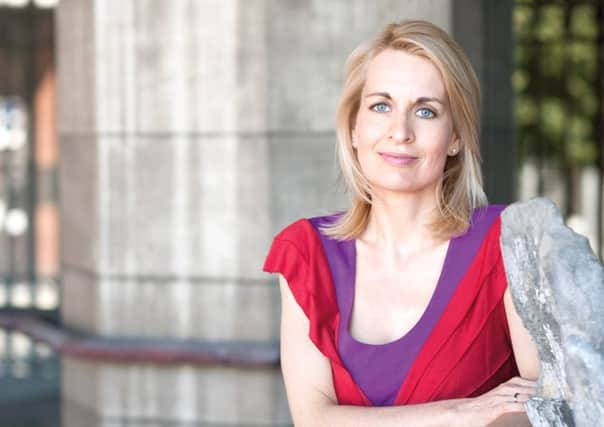Charlotte Brontë’s secret love


“The priest told me that in the 19th century Charlotte Brontë had been to confession in the cathedral. She wasn’t a Catholic and I wondered why she would do that,” says Janzing who had long been a fan of the Brontës, having first read Jane Eyre and Wuthering Heights when she was 11. “So then I started to read everything I could about Charlotte Brontë. I began my research about seven years ago and the book was published in 2013.”
The novel, Charlotte Brontë’s Secret Love, which has now been translated into English by Paul Vincent, tells the story of a little-known chapter in Charlotte’s life when she persuaded her sister Emily to accompany her to Brussels to study French.
Advertisement
Hide AdAdvertisement
Hide AdThe two siblings enrolled at the Pensionnat Heger, a boarding school for young ladies, where in return for board and lodging, Charlotte taught English and Emily gave music lessons. Whilst there Charlotte fell passionately and inappropriately in love with her teacher Constantin Heger, an older married man. The whole episode ended rather painfully for Charlotte, but she learnt a lot about life – and unrequited love in particular. Heger also provided her with a kind of blueprint for her male protagonists. It is not difficult to imagine where the inspiration for Rochester in Jane Eyre or Paul Emmanuel in Villette came from, for example.
“Sometimes people ask me if I think those novels would have existed without Monsieur Heger,” says Janzing. “I think not those novels – she would have written other novels, but he was such a huge influence on her and the experience made her more mature. She must have learned so much in so little time and seen the world through other eyes.And she was so heartbroken when she returned home; that makes a writer write better – you have to have some experience in life.” For her research Janzing says she got a lot of help from the Brontë Society and she visited the Parsonage Museum in Haworth, but most of her research was done much closer to home. “The biggest part was done in Belgium with the Brussels Brontë Group and in the archives in Antwerp,” she explains. “I did worry that British readers might think this should have been written by an English writer, but I know the Brontës and I know Brussels so perhaps I was the right person to write about this part of Charlotte’s life.” The film rights to the book have already been sold – snapped up by producer David P Kelley after the novel was one of ten selected at the Berlin Film Festival this year as good potential movie projects – and Janzing is already working on her third novel. Her first, Grammar of an Obsession, appeared in 2009 to critical acclaim but she began writing long before that – she completed a novel as a teenager and had been practising her craft on a typewriter from the age of six. This youthful start to her literary career she shares with the Brontës who created tiny handwritten books as children. “It is something that’s in your blood,” she says. “I will always do it – it is a vocation.”
• Charlotte Brontë’s Secret Love by Jolien Janzing, World Editions, £9.99.